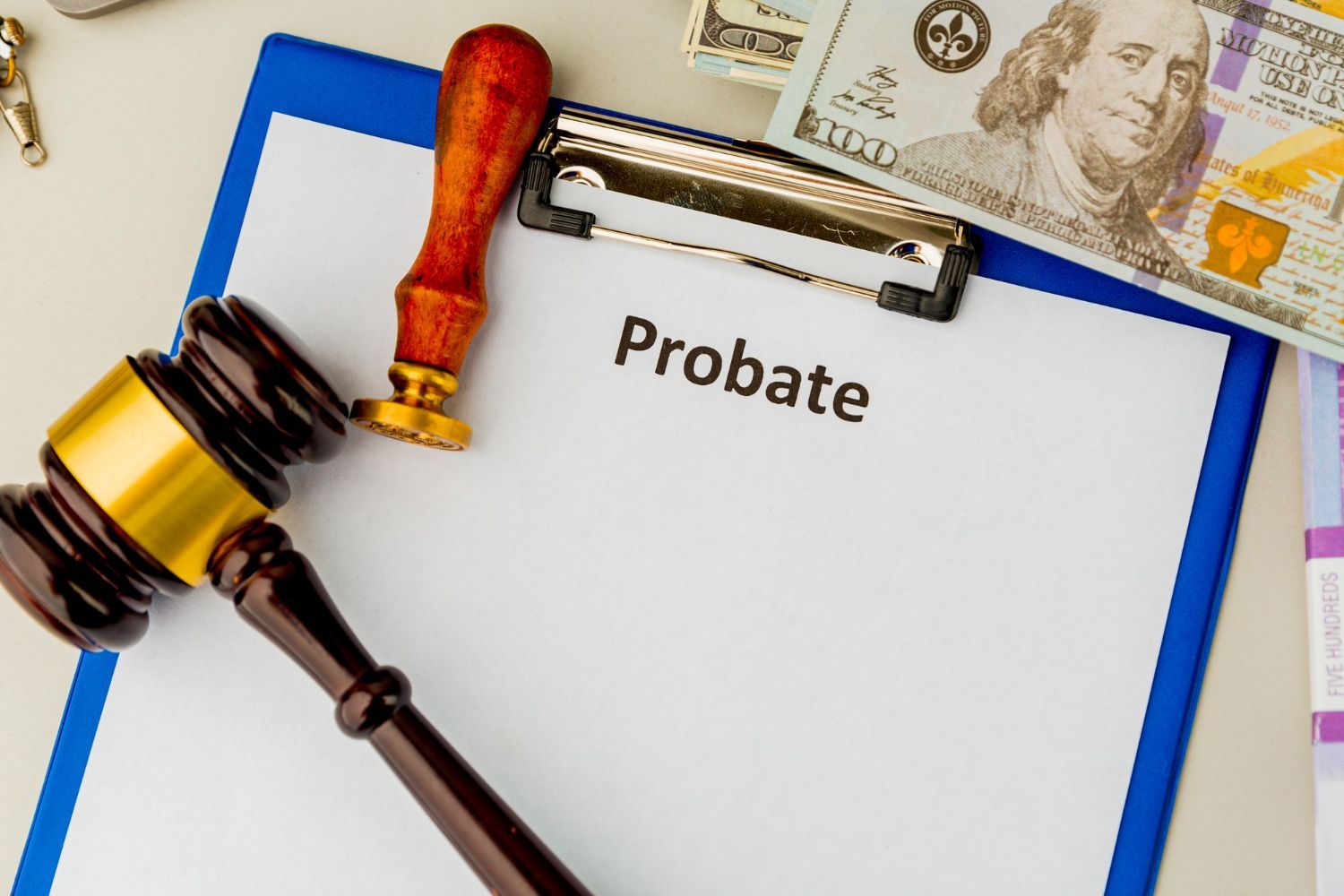The Basics Of Probate Explained
When someone passes away, their belongings, property, and debts need to be settled. This legal process is called probate. Probate can sound confusing at first, but understanding how it works can bring peace of mind to families handling a loved one’s affairs. Whether you're dealing with an estate for the first time or simply want to be prepared, it helps to know the basics of how probate administration works in Georgia.
Georgia has laws and timelines that shape how probate unfolds. From figuring out if a will exists to collecting and distributing property, every step matters. While no two cases are exactly the same, Georgia’s process follows a structured format that helps make sure the decedent's wishes are honored and that legal guidelines are followed along the way.
What Is Probate?
Probate is the legal process that ensures a person’s assets are passed on according to their will or, if no will exists, through Georgia’s laws on inheritance. It begins after someone dies and involves gathering their property, paying off their debts, and distributing what's left to the rightful heirs or beneficiaries.
You usually hear about probate when someone dies with a will, but it still applies when there's no will. In the case of a valid will, the probate court confirms it and appoints the named executor to carry out the instructions. If no will exists, the court appoints an administrator, and the estate is distributed according to intestate succession laws in Georgia.
Common situations that lead to probate include:
- The person owned property solely in their name
- The estate includes financial accounts without named beneficiaries
- Real estate doesn't have joint ownership or transfer-on-death deeds
- Debts or taxes need to be paid from the estate before distributions
Some assets bypass probate altogether, like life insurance policies with named beneficiaries or joint accounts with rights of survivorship. Still, it’s important to be aware that most estates go through at least a partial probate process, especially if they include items that weren't previously planned for.
Steps in Probate Administration
Probate administration involves several steps that vary based on the size and structure of the estate. While each estate may look a bit different, Georgia follows a basic order of operations for most probate cases. Here's a general breakdown of what to expect:
1. Filing the Petition
Probate begins with a petition filed in the probate court of the county where the decedent lived. If there's a valid will, the executor named in the will typically files the petition. If there isn't a will, the court appoints someone to serve as administrator.
2. Official Appointment by the Court
The court officially authorizes the executor or administrator to handle the estate. These documents, sometimes called Letters Testamentary or Letters of Administration, give the person legal authority to access accounts and manage assets.
3. Identifying and Valuing Assets
One of the first tasks is creating an inventory of everything the decedent owned. This includes real estate, vehicles, financial accounts, and personal belongings. The estate may need professional appraisals to confirm value, especially if it's taxable or includes business interests or collectibles.
4. Paying Debts and Taxes
Before assets can be passed on, outstanding debts have to be paid. That includes credit card bills, final utility statements, and taxes owed. Creditors are notified and given time to make claims against the estate.
5. Distributing the Assets
After debts and costs are taken care of, remaining assets are distributed. If there's a will, this follows the listed instructions. If there isn't one, Georgia's laws determine how the property gets divided among family members.
Handling probate correctly is important. If any step is skipped or deadlines are missed, it may delay distributions or add legal trouble. Managing a loved one’s estate takes consistency, knowledge of local rules, and often, legal help to keep everything on track.
The Role of Executors and Administrators
Once probate begins, the executor or administrator becomes responsible for keeping things moving. In Georgia, these individuals act on behalf of the estate with legal authority granted by the probate court. While the terms are different—executors are named in a will, administrators are appointed when there is no will—the duties are about the same.
Their main job is to follow the law while honoring the deceased's final wishes. This includes managing money, selling property if needed, and making sure everything is distributed fairly. It often involves lots of communication with heirs, lawyers, banks, and the court. Executors must stay organized and stick to court deadlines to avoid slowing things down.
In Georgia, any competent adult can serve so long as they’re not under legal disability. It's common for people to choose close relatives or trusted friends. Some things to keep in mind when naming or accepting this role:
- Pick someone honest and dependable who can handle paperwork and timelines
- Consider naming a backup, especially in blended families or where conflict might arise
- Understand that the role can come with personal liability if things aren't done properly
Serving as an executor isn’t personal. It’s a legal job. But it can also get emotional, especially when sorting out sensitive issues between family members. That’s why careful planning and trusted guidance help make a hard process easier.
Common Challenges in Probate Administration
Probate in Georgia tends to follow a fairly routine process, but there are times when things go off track. Delays or disputes can slow things down, increase costs, and strain relationships. The more people involved, the more chances there are for misunderstandings or disagreements.
Here are five common issues that can arise during probate administration:
1. Will Contests
When someone questions the validity of a will, maybe claiming it was forged, signed under pressure, or that the person lacked capacity at signing, the matter heads to court. These claims are taken seriously and often require legal evidence and testimony.
2. Disputes With Heirs or Beneficiaries
People don’t always agree on what’s fair. Arguments arise over sentimental items, real estate decisions, or how money is divided. These disputes can block the estate from closing on time.
3. Executor Mistakes
Sometimes executors mishandle funds, don’t follow deadlines, or forget to notify all parties. Even with the best intentions, one small misstep can create a big legal mess.
4. Unknown Debts or Creditors Appearing Late
It's not uncommon for a surprise debt to pop up weeks or months into the process. That can suddenly change the timeline or the amount of inheritance.
5. Missing Assets
If the deceased didn’t create a full inventory before passing, it takes time to track everything down. That includes bank accounts, property deeds, or digital assets like cryptocurrency.
Probate doesn’t need to feel like a maze, but it can turn into one without structure, communication, and planning. Understanding where the trouble spots are makes it easier to avoid them.
How Georgia Families Can Avoid Probate Pitfalls
The best way to deal with probate problems is to plan for them ahead of time. Simple estate planning tools can reduce the chances of going through full probate or help the process move faster if it's unavoidable. Trusts, joint ownership, and updated beneficiary designations are all ways to shift assets outside of probate.
But when probate is necessary, it helps to remember that every step has a reason. From filing in the right court to paying off the final water bill, each task builds on the last. Executors don’t have to be experts, but they do need to be proactive and detail-focused.
In Georgia, especially during summer months when schedules fill quickly, it’s smart to begin the process soon after a passing. Courts can get backlogged and paperwork takes time to gather.
No one enjoys probate. It’s often the hardest time a family faces. But with the right support and a solid understanding of what’s ahead, the process becomes more manageable. And when the estate finally settles, families can focus on moving forward with peace of mind.
Navigating probate administration can be challenging, but with proper preparation and guidance, it becomes more manageable. If you need help understanding wills and trusts or handling the legal side of settling an estate, McGinn Law is here to support you. Let us guide you through the process with care and clarity. Learn how we can assist with
probate administration so you can move forward with confidence.





